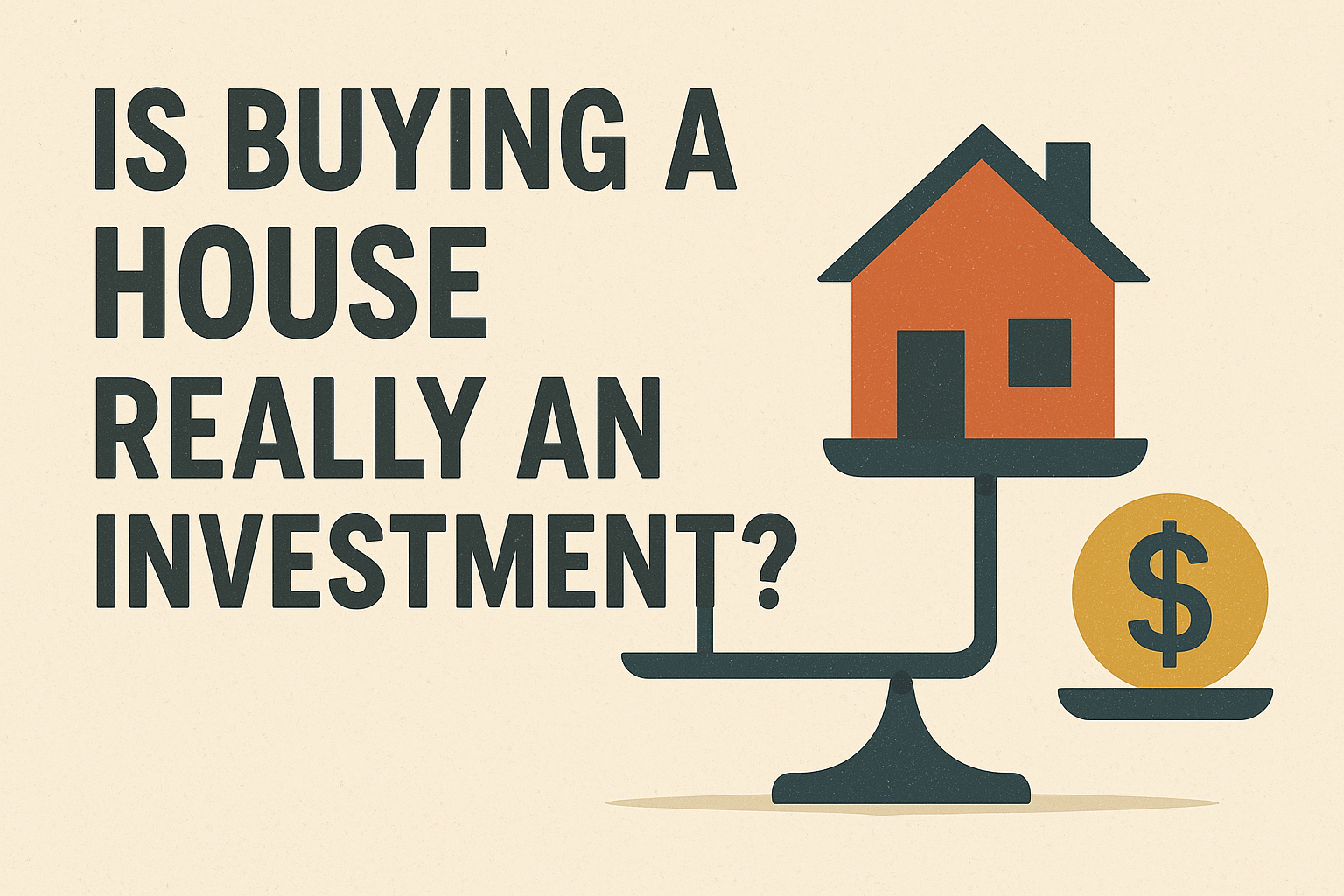Buying a house is not necessarily an investment if you’re living in it. In fact, renters might actually be better off than some homeowners in the long run. I know, that’s probably not what you’ve been told by your parents, teachers, or mentors, but what if I told you that the idea of home ownership is a big lie and more like a 25-year trap?
What the Wealthy Do
Let’s look at the wealthiest people in the world. According to Forbes, none of the top 1,000 people are rich because they own a house. They’re rich because they own shares in businesses. Even famous athletes like Michael Jordan and LeBron James aren’t wealthy because of playing sports. They’re rich because they’ve built businesses around their names.
The Homeownership Trap
Society teaches us from a young age that buying a house will set us up for life. But if you’re living in that house, it’s not making you money. It’s draining your finances with mortgage interest, maintenance costs, property taxes, insurance, and bills. Not only that, but you’re locking up all your money into an asset that doesn’t produce income for the next 25 years.
Renting vs. Home Ownership: A Different Perspective
When I say renting could sometimes be better, I don’t mean squandering money on unnecessary things. I’m talking about a strategic renter. This is someone who takes the money for a house deposit, along with all the costs of homeownership, and invests it instead. The smart renter would put their money into something that statistically outperforms home ownership, such as an index fund.
The S&P 500 vs. Home Ownership
Let’s break it down: A typical house deposit in the UK is around £50,000. Add in stamp duty, legal fees, and moving costs, and that’s another £10,000 or more. Then, you have ongoing maintenance costs—things breaking, roofs leaking, and other issues that inevitably arise. If you take that £60,000 and invest it into an index fund like the S&P 500, over the next 30 years, you’re going to significantly outperform a homeowner.
Real Statistics
This isn’t just speculation. Over the past 30 years, index funds like the S&P 500 have outperformed home ownership. Based on historical data, it’s reasonable to assume that the S&P 500 will continue to do so. Therefore, the person who invests in the index fund will likely end up wealthier than the person who buys the house.
The Importance of Strategic Spending
The issue is that people often assume homeowners and renters will spend their money the same way. The homeowner spends money on bills and mortgages, while the renter simply pays rent. If both parties spend their money wisely, however, the renter investing in an index fund will significantly outperform the homeowner.
When Home Ownership is an Investment
Home ownership can be a great investment if you’re buying to rent out. When you buy a house as an investment property, you’re paying only the interest on the mortgage. The rental income covers the mortgage, and you benefit from property appreciation. This is when home ownership truly becomes an investment.
Personal Experience and Insight
Yes, I own multiple properties and stocks. I’m in a position to say which option is better because I have direct experience with both. From my perspective, if you want to build real wealth, you need to be smart with your money. Don’t just blindly follow the “homeownership is king” narrative. Understand the true financial implications before you make any decisions.
Is Buying a Home a Good Idea?
Is buying a home a good idea? Yes, if you plan to live in it for at least seven years. If you plan to move within two years, it doesn’t make sense. After those two years, you’re likely going to need to buy another home, incurring costs like stamp duty and other taxes, which can be frustrating. Those who’ve moved homes multiple times will understand this pain.
Conclusion: Run the Numbers
If your goal is to build wealth, don’t let outdated societal views trap you. Run the numbers, explore investments, and make a strategic decision. Home ownership might be the right choice for some, but for others, renting and investing strategically could be a better path. You can use the example I provided—investing £60,000 into an index fund versus buying a house—and decide for yourself.
What do you think? Have you been misled about home ownership? Share your thoughts in the comments.

